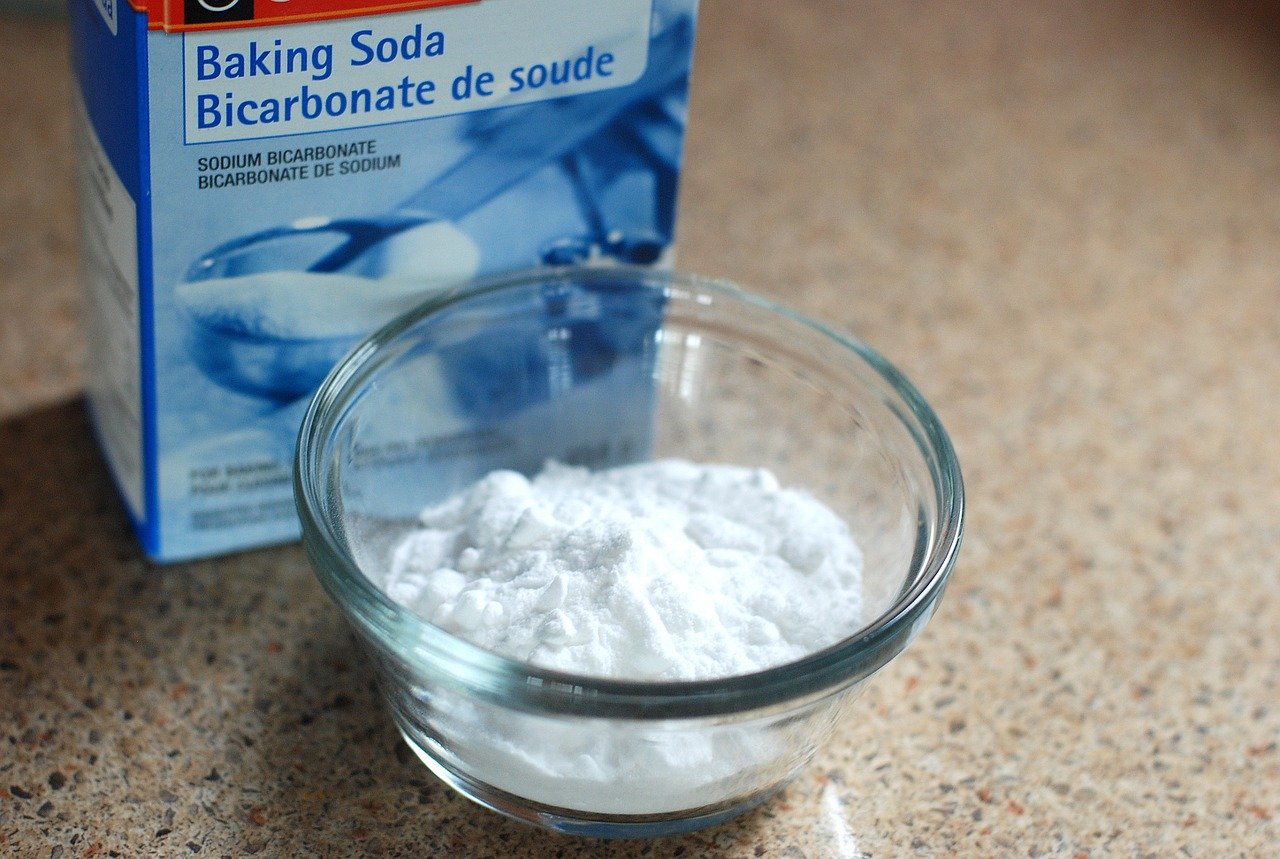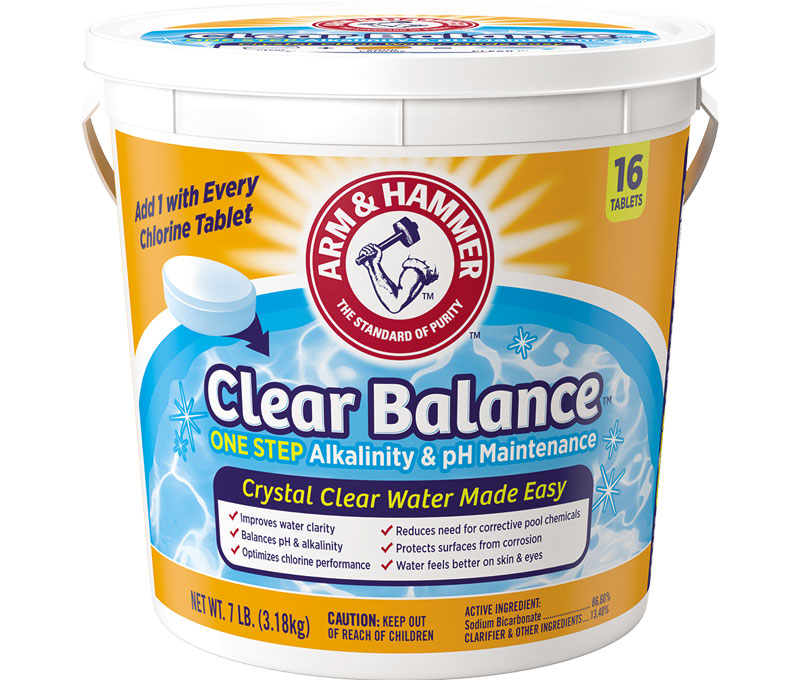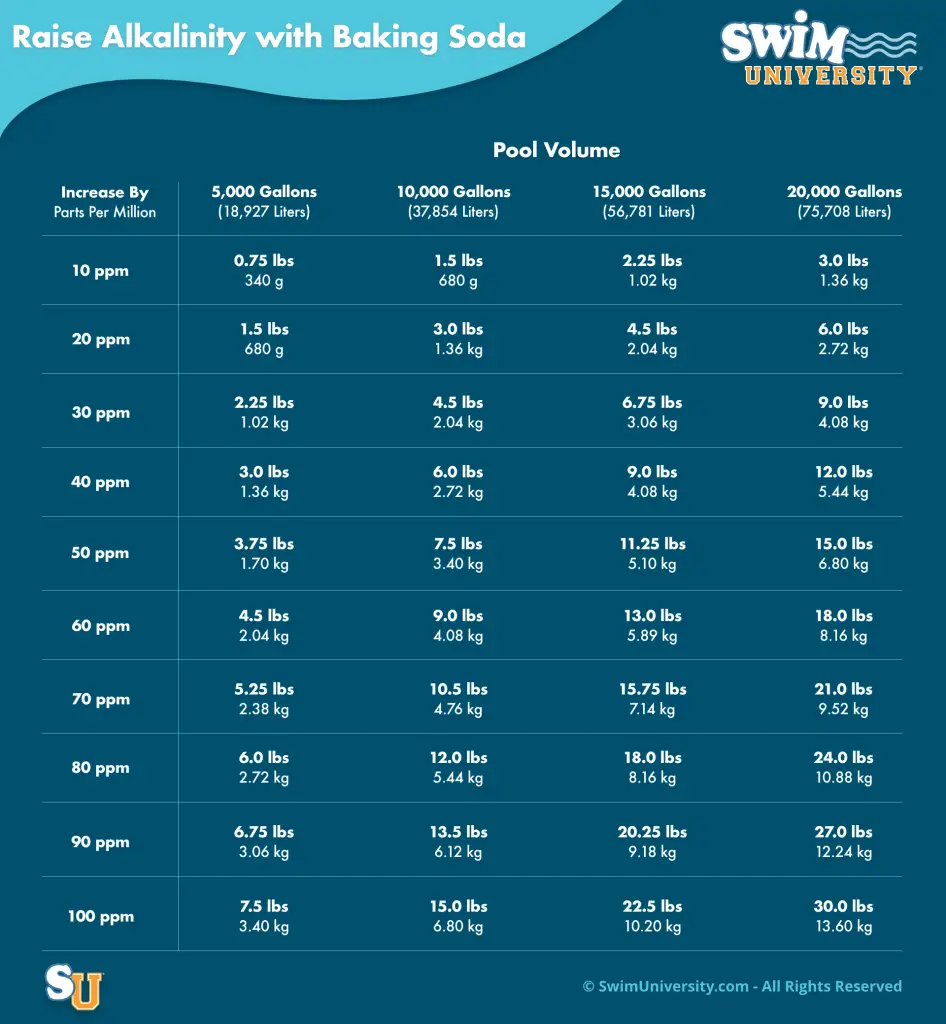Baking soda in a pool helps to increase alkalinity and prevent pH levels from becoming too acidic. A pool requires regular maintenance to maintain water balance and prevent the growth of algae and bacteria.
One important component of pool care is maintaining the correct pH level. If the pH level becomes too low (acidic), it can cause skin and eye irritation, damage to pool equipment, and reduce the effectiveness of chlorine. Baking soda, also known as sodium bicarbonate, is a natural and cost-effective way to increase alkalinity and raise the pH level of the pool water.
In addition to regulating pH levels, baking soda helps to stabilize the water chemistry, making it safer and more comfortable for swimmers.

Credit: www.poolandpatiopros.com
Balancing Ph Levels
What does Baking Soda do for a Pool – Balancing pH Levels
Importance Of Ph Levels In Pool Water
The pH level of pool water refers to its acidity or alkalinity. It is crucial to maintain the correct pH level in pool water for several reasons, including ensuring the effectiveness of chlorine, preventing corrosion of pool equipment, and optimizing the comfort of swimmers.
How Baking Soda Helps In Ph Balancing
Baking soda, also known as sodium bicarbonate, is a versatile product that plays a vital role in maintaining the proper pH levels in pool water. When added to the pool, baking soda serves as a buffer, helping to prevent drastic swings in pH levels. It acts as a pH stabilizer, keeping the water within the desired range of 7.2 to 7.8.

Credit: www.youtube.com
Alkalinity Control
The alkalinity of your pool is crucial to maintain the water balance and ensure a safe and comfortable swimming environment.
Understanding Alkalinity In Pools
Alkalinity refers to the ability of water to resist changes in pH levels, acting as a buffering agent.
- Helps prevent pH fluctuations
- Optimal range: 80-120 ppm
Baking Soda As An Alkalinity Regulator
Baking soda serves as a cost-effective solution to regulate alkalinity in pools.
- Adds alkalinity without affecting pH
- Stabilizes water balance
Stain Removal And Water Clarification
Baking soda is a versatile ingredient that goes beyond its use in the kitchen. When it comes to pool maintenance, baking soda proves to be equally effective in stain removal and water clarification. Its natural cleaning properties make it an excellent choice for keeping your pool water crystal clear and free from unsightly stains. In this section, we will delve into the role of baking soda in stain removal and the process of clarifying pool water using this simple yet powerful solution.
Role Of Baking Soda In Stain Removal
Unsightly stains on your pool’s surfaces can be a real eyesore. Thankfully, baking soda comes to the rescue! By using baking soda, you can effectively tackle those stubborn stains without resorting to harsh chemicals or expensive stain removers. Baking soda acts as a gentle abrasive agent that helps to lift away stains without damaging the pool surfaces. Whether it’s rust stains, algae buildup, or mineral deposits, baking soda can effectively eliminate them, leaving your pool looking fresh and clean.
Clarifying Pool Water With Baking Soda
Maintaining clean and clear water in your pool is essential for an enjoyable swimming experience. Baking soda proves to be an invaluable tool in achieving this goal. Its alkaline nature helps to balance the pH levels of your pool water, ensuring that it remains in the ideal range for optimal clarity. When the pH is balanced, you can say goodbye to cloudy water and hello to sparkling, inviting pool water.
In addition to pH balancing, baking soda also aids in water clarification by helping to remove small particles and debris that can make your pool water appear dull and hazy. The baking soda particles bind to the impurities, allowing them to be easily filtered out. This simple process helps to restore the natural sparkle of your pool water, making it irresistible for a refreshing swim.
Cost-effectiveness
Baking soda is a cost-effective solution for pool maintenance. It helps to balance the pH levels, reduce alkalinity, and clarify the water, ensuring a clean and inviting swimming experience.
Baking Soda, a staple in most households, is a budget-friendly option for maintaining pool chemistry.Comparing Baking Soda With Traditional Pool Chemicals
Baking Soda costs less than traditional pool chemicals like chlorine, making it a more economical choice.Long-term Savings And Benefits
Using Baking Soda in your pool not only saves money upfront but also offers long-term benefits such as reduced chemical usage.Application And Usage
Baking soda, also known as sodium bicarbonate, can be a beneficial addition to pool maintenance. Its application and usage play a crucial role in balancing pH levels and alkalinity in the pool water. Let’s dive into the proper application of baking soda in pools, along with essential precautions and dosage.
Proper Application Of Baking Soda In Pools
When applying baking soda to your pool, it’s essential to distribute it evenly across the water. To achieve this, pre-dissolve the baking soda in a container of pool water to create a solution, then slowly pour it into the pool while the pump is running. This method ensures proper dispersal, preventing clumping and maximizing effectiveness. Additionally, regular testing of pH and alkalinity levels is essential for determining the appropriate amount of baking soda required.
Precautions And Dosage
While baking soda is a safe and natural pool treatment, it’s crucial to use it in moderation. Overuse can lead to an imbalance in pH levels, causing potential harm to the pool and its users. Always follow the manufacturer’s guidelines and recommended dosage for your specific pool size. It’s advisable to start with a conservative amount of baking soda and gradually increase as needed, based on water testing results.

Credit: www.armandhammer.com
Environmental Impact
The environmental impact of using baking soda in the pool is a crucial aspect to consider. Baking soda not only helps maintain the pool’s water balance but also offers eco-friendly benefits. Let’s explore how the use of baking soda contributes to reducing chemical runoff and environmental harm, making it a sustainable choice for pool maintenance.
Eco-friendly Nature Of Baking Soda
Baking soda, also known as sodium bicarbonate, possesses natural and eco-friendly properties, making it an environmentally responsible choice for pool maintenance. Its chemical composition is gentle on the environment, and it does not produce harmful byproducts, unlike many traditional pool chemicals.
Reducing Chemical Runoff And Environmental Harm
When added to the pool, baking soda helps stabilize the water’s pH levels without introducing harmful chemicals. As a result, it reduces the need for harsh chemical additives, minimizing the potential for chemical runoff into the environment. This proactive approach contributes to the overall reduction of environmental harm caused by conventional pool treatment methods.
Conclusion
Incorporating baking soda in your pool maintenance routine can effectively balance pH levels. This natural remedy helps to keep your pool water clean and crystal clear. By using baking soda, you can avoid harsh chemicals, promote a healthier pool environment, and enjoy a refreshing swimming experience.





